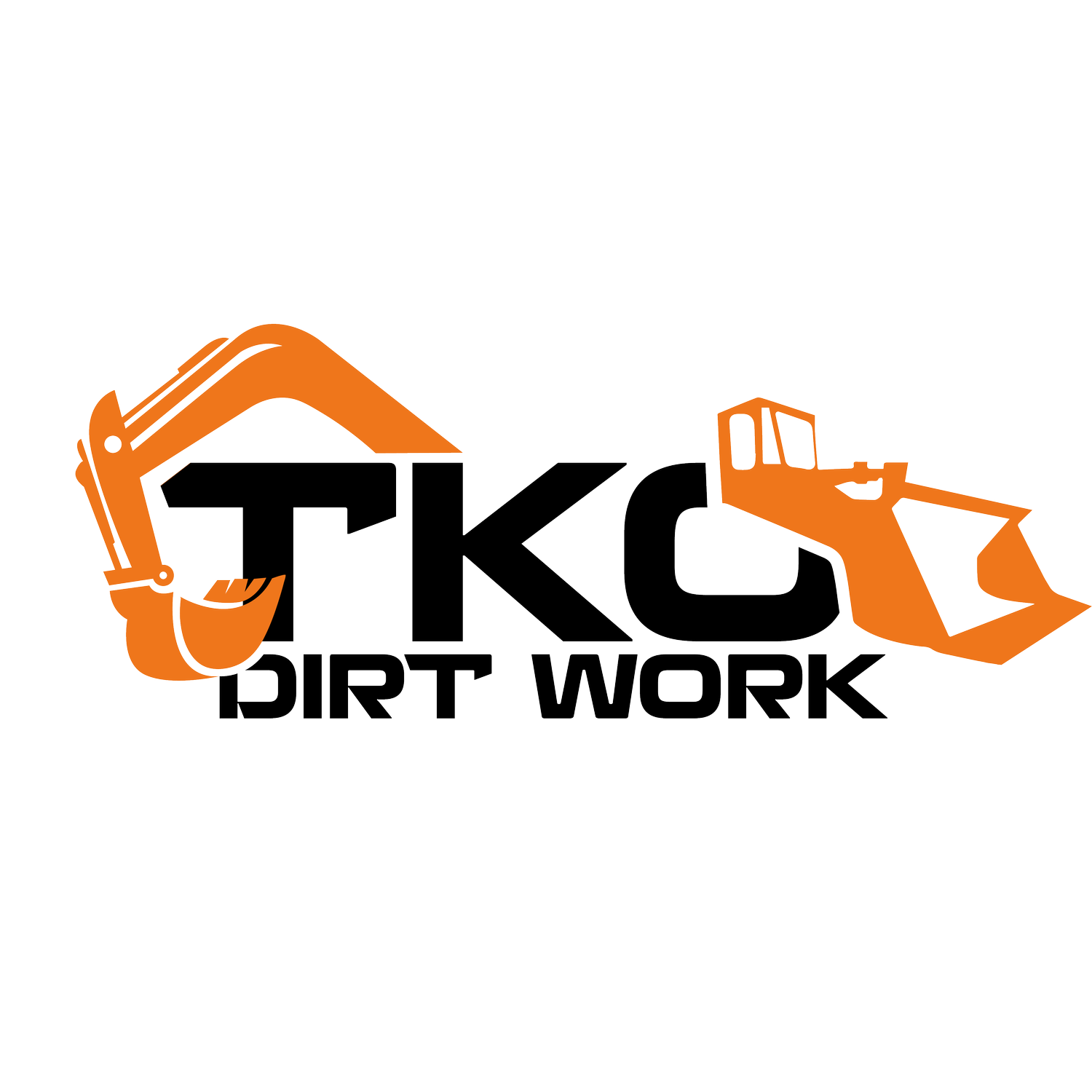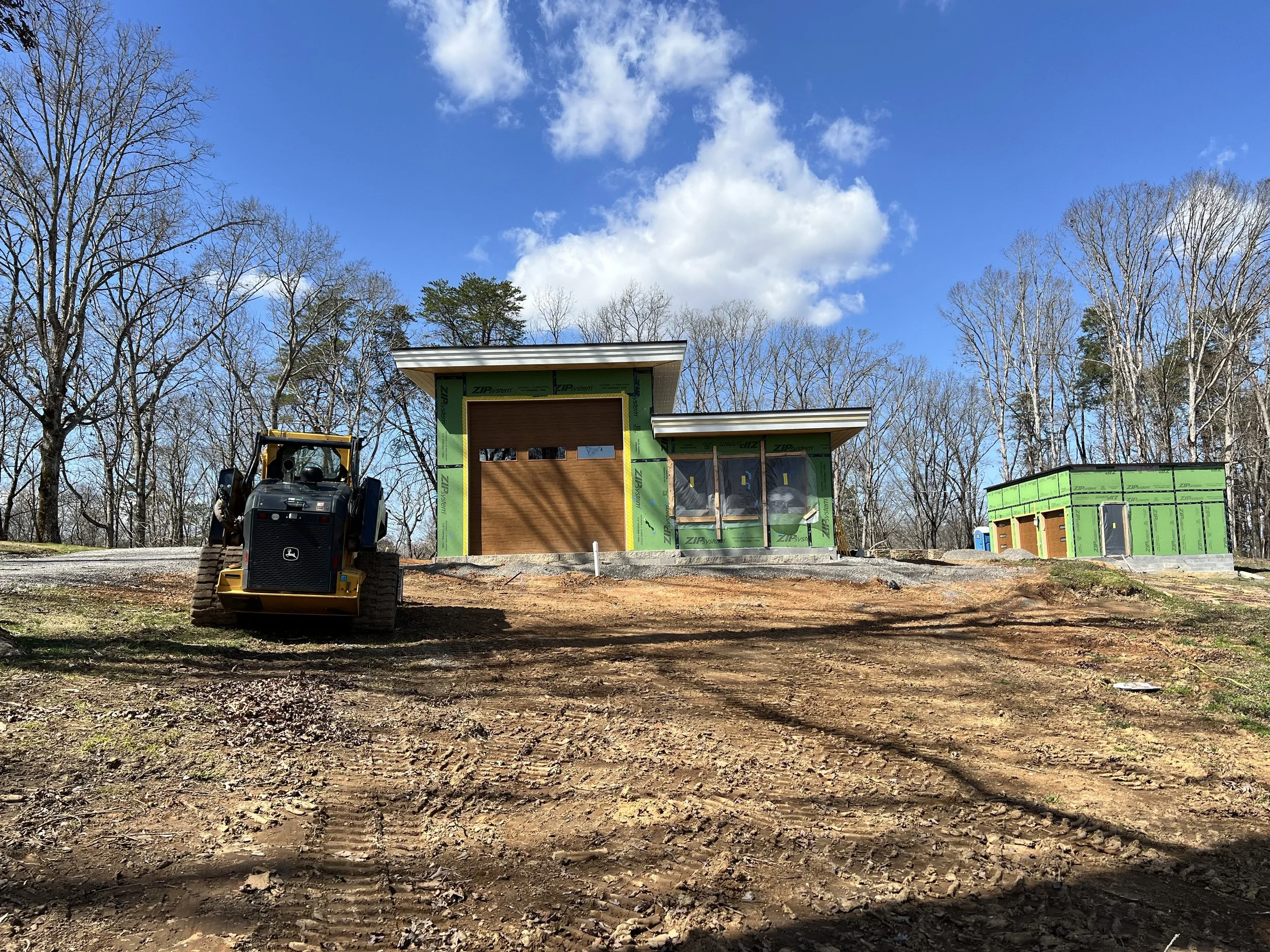Properly Preparing Your Site for Your Excavation Project
Properly Preparing Your Site for Your Excavation Project
Starting an excavation project can be a daunting task. Whether you're planning to build a new structure, clear some land, or install a septic system, it’s essential to ensure that the site is properly prepared. Many homeowners or project managers are eager to get started, but without the right preparation, things can go wrong quickly, leading to delays, extra costs, and even safety hazards.
At TKO Dirt Work, based in Loudon County, TN, we’ve seen it all. We know how important it is to properly prepare your land before excavation begins. Our goal is to help you avoid common pitfalls and ensure that your excavation project goes smoothly, from start to finish. Let's walk through the critical steps of preparing your site for excavation, so you can set your project up for success.
1. The Importance of Proper Site Preparation
When you’re gearing up for an excavation project, proper site preparation is everything. It can mean the difference between a smooth, efficient operation and a frustrating, costly process. Imagine you're excited to clear some land, only to find unexpected rocks or underground utilities. Now you’re dealing with delays and extra expenses. A little upfront planning can help you avoid these kinds of headaches.
You might feel nervous about the complexity of excavation, especially if you're unfamiliar with the process. We understand how overwhelming it can be to navigate these unknowns, but rest assured, we’re here to guide you through every step of the way. Let’s dive into the steps to get your site ready for excavation, so you can breathe easier knowing you’re in good hands.
2. Step 1: Assess Your Land – Understand What You're Working With
Before anything else, it's crucial to assess the land you're planning to excavate. This step involves understanding the terrain, the soil type, and any natural obstacles. For example, are there areas with dense vegetation or large rocks that need to be removed first? Is the ground level, or are there slopes that could complicate the excavation process?
We recommend getting a professional site assessment to better understand what’s beneath the surface. Soil conditions and underlying rock formations can significantly impact the cost and timeline of your project. Our team at TKO Dirt Work is highly experienced in assessing properties across Lenoir City, TN, and we can help you evaluate these important factors.
3. Step 2: Plan for Accessibility – Making Sure Equipment Can Reach the Site
Excavation equipment can be large, heavy, and difficult to maneuver, so accessibility is key. You’ll need to ensure that the excavation equipment can easily access the site, whether that means creating a clear path or removing any barriers such as fences, trees, or buildings. If your land has limited road access, this can complicate the delivery and operation of excavation equipment.
In some cases, we may recommend clearing a path or creating temporary access roads to get the equipment where it’s needed. Planning for accessibility can help avoid unnecessary delays and ensure that the excavation work proceeds as scheduled.
4. Step 3: Check for Utilities – Avoiding Costly Mistakes
One of the most critical steps in preparing for excavation is checking for underground utilities. There’s nothing worse than starting your excavation work and suddenly hitting a buried gas line or water pipe. This can cause significant damage, delay your project, and lead to costly repairs.
Before excavation begins, make sure you have the utility companies mark all underground lines in your area. This process is commonly referred to as "locating utilities." In Tennessee, services like Tennessee 811 can help you with this process by providing utility location information for free. We strongly recommend doing this to avoid any potential disasters.
5. Step 4: Clear the Land – Removing Obstacles for Smooth Excavation
Once you’ve assessed the land and ensured accessibility, it’s time to clear the area. Removing trees, shrubs, rocks, and any other debris is a crucial part of the preparation process. Not only will this make the excavation easier, but it will also prevent these obstacles from getting in the way during the project.
This step may also involve removing structures, old foundations, or fencing, depending on the project’s scope. If you have large trees or rocks on your property, specialized equipment may be needed for safe and efficient removal.
6. Step 5: Choose the Right Equipment – What You Need and Why It Matters
Excavation projects require specific equipment for various tasks. Depending on the scale of the project, you might need bulldozers, backhoes, excavators, dump trucks, or specialized equipment for tasks like land grading or trenching.
Choosing the right equipment for your project is crucial for its success. You’ll need the right tools for the job to avoid inefficiencies, damage to your land, or delays. At TKO Dirt Work, we provide high-quality equipment and experienced operators to ensure your excavation is done right the first time.
7. Step 6: Soil Considerations – How Soil Type Affects Your Excavation Project
The type of soil on your property will play a significant role in how your excavation project progresses. Some soil types, like clay, can be very challenging to work with and require special equipment or techniques to excavate. On the other hand, sandy or loose soil can be easier to dig through, but it may require stabilization if you're working on a slope or near structures.
Our team is familiar with the soil types in Loudon County and surrounding areas and can help you plan for soil conditions. Understanding these factors will help you prepare for any potential difficulties, allowing us to take the right approach from the beginning.
8. Step 7: Permits and Regulations – Understanding Local Requirements
Before beginning any excavation work, make sure you’ve obtained all the necessary permits. Local municipalities often require permits for excavation, especially if the project involves grading, digging, or altering the landscape in any significant way. These permits are in place to ensure safety, protect the environment, and maintain the integrity of public utilities.
Working with an experienced excavation company, like TKO Dirt Work, can help you navigate the local permitting process. We’re familiar with the requirements in Lenoir City, TN, and surrounding areas, so we can assist you in obtaining the proper permits and avoiding any legal complications.
9. Step 8: Budgeting for Unexpected Costs – Planning for the Unseen
No matter how well you prepare for your excavation project, there are always unforeseen factors that may arise. Hidden rocks, unexpected soil conditions, or changes in the weather can cause delays or add costs. It’s essential to plan for the unexpected by setting aside a contingency budget for any surprises along the way.
Our team at TKO Dirt Work will work with you to provide a realistic estimate and help you prepare for any potential additional costs. With our experience in excavation services, we can often spot potential issues early on, helping you avoid last-minute surprises.
10. Conclusion: Getting Ready for a Successful Excavation Project
Proper site preparation is essential to a smooth excavation project. By following the steps outlined above, you can minimize delays, avoid costly mistakes, and ensure that your project stays on track. From assessing your land to obtaining the necessary permits, each step is important for a successful excavation experience.
At TKO Dirt Work, we’re here to guide you through the entire process. We understand that excavation can be overwhelming, but with our expertise and attention to detail, we’ll help you get the job done right. If you're looking for excavation services near Lenoir City, TN, we’re ready to help. Contact us today for a consultation, and let’s get your project started off on the right foot!

